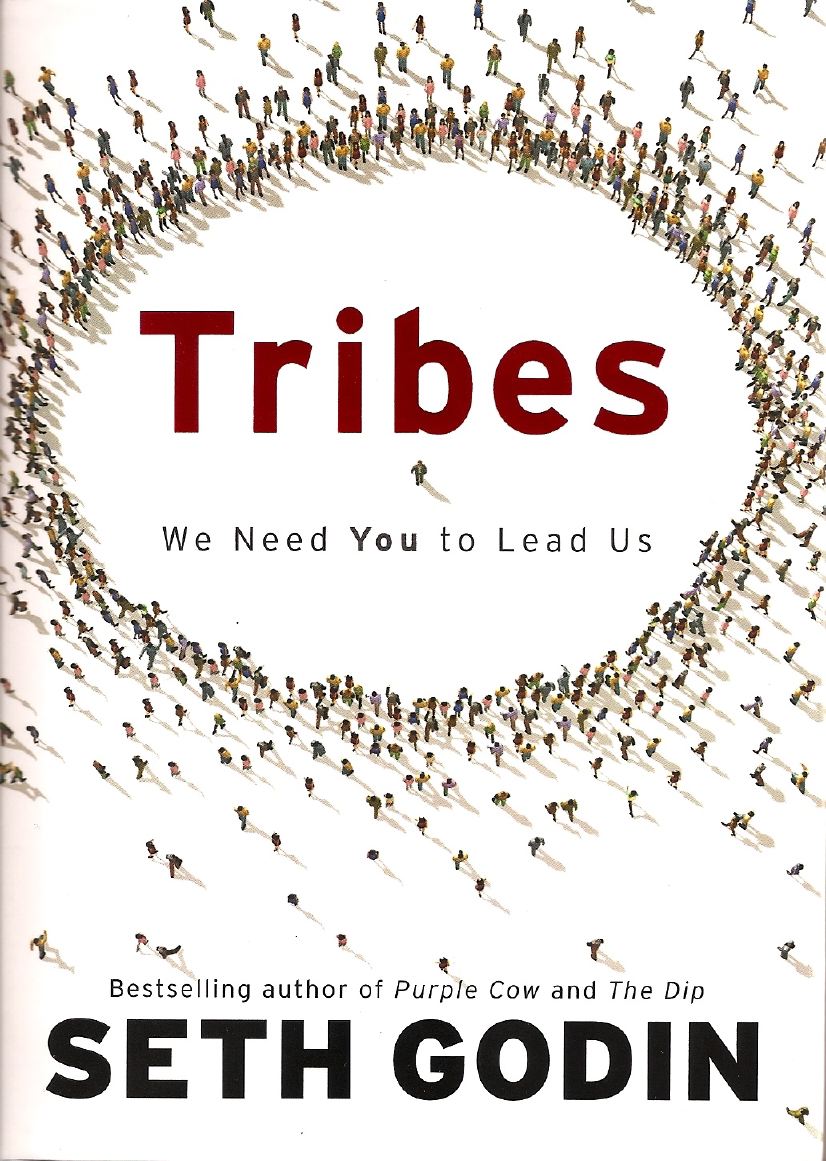Disrupting the Leadership Paradigm, One Tribe at a Time
Bookshelf
By Rob Grabowski (Alabama)

What makes a good or successful leader? This question is difficult to answer, especially in today’s rapidly changing society. Daily, we are inundated with alternatives for every service and product we wish to acquire. How could one toothpaste option, for instance, rise past the swath of other options on the grocery store shelf? What differentiates a streaming service or blog amongst its peers? Well, the next big thing is not as much dependent on the good or service as it used to be. Now-a-days the next big thing may not even be that big, it might even be a duplicate or reproduction of something old. But, in every case, there is a new type of leader driving it upward and onward.
Tim Ferriss didn’t invent the podcast. He revolutionized it with a heretical leadership style that Seth Godin, Tim’s good friend, eloquently describes in his book, Tribes. Tribes works to convince the reader that now is the time for the “heretical” leader to emerge. And who can be that leader? Godin calls on his readership to take up the proverbial yoke and lead us into the future, ending his short but informative book with, “We need them. We need you. Spread the word. Thanks.” This conversationalist tone that Godin takes throughout the book helps him appeal to a younger audience with the hopes of instilling heretical behavior. So, what does Godin mean by heretic? What is he calling his readers to take heed of? Before delving into the definition, it’s important that we follow Godin’s chronology, starting with the new type of follower. An updated follower that collectively makes up a Tribe.
A Tribe is simply an organization’s following. It is the person who buys the toothpaste, listens to the podcast, or watches the TV channel. Godin postulates that tribes have become unrestricted, squishy, and ubiquitous. The Internet is an infinite platform, allowing us to communicate across the globe in seconds. It “eliminates geography.” Tribes are no longer limited to a village or town. They can consist of individuals from different states, countries, or continents, joining together to create “more tribes, smaller tribes, influential tribes, horizontal and vertical tribes, and tribes that could never have existed before.” Tribes are now squishier than they used to be. They used to be slow to communicate and coordinate. Tribes used to wait weeks to hear back from a follower to make an important decision or receive a donation. Now, they are taut and have instant communication and instant delivery. Finally, they are ubiquitous. Every type of tribe exists. Even if the tribe has not yet formed, it is out there waiting for a leader give it shape. Godin says that a group of people can become a tribe with only two things: one, a shared interest, and two, a way to communicate.
So, how does a leader fit in with the tribe? What does heretic mean, and how does behaving like one not get you burned at the stake? “Heretics are engaged, passionate, and more powerful and happier than everyone else,” Godin describes. Heretics do not fear change; they embrace it and refute the status quo of an organization. A great heretic leader is not focused on the fruits of his or her labor, they are focused on the tribe and only the tribe. Take Tim Ferriss as an example. As referenced earlier, Tim did not invent the podcast. However, he has found great success because he is a heretic leader. Tim truly believes in providing top quality tips and tools to his tribe. His focus is on his tribe and the value they receive from his services. He has created faith amongst his tribe. Faith is important. It allows the tribe to overcome fear when their leader makes a change. With this, Tim can break away from the mold or status quo of 30-60 minute podcasts and post two and a half hour long podcasts that his tribe voraciously consumes. Heretic leaders go against the grain, they aren’t afraid to take leaps of faith into something that may not look so nice and tidy from the outside.
The last piece of Godin’s book is to show that the reader can and should be a heretic leader. His key elements for creating a “micromovement” consist of five actionable behaviors and six core principles that a heretic leader should keep close at heart. Godin’s book provides an interesting, but inspiring journey into modern leadership. The old factory based management is not the type of leader that will work in today’s society. Leaders will arise from the bottom-up, refuting the status quo with the hopes of making a change for the betterment of the world, not for personal gain. In essence, they’ll be an ethical leader and that’s something that should resonate with every member of the Legion of Honor.